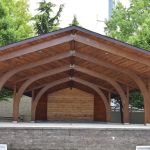Understanding the Landscape of Amusement Park Regulation in the United States
Amusement parks are popular destinations for family fun and entertainment across the United States. However, the regulations overseeing these parks vary significantly from state to state. For visitors concerned about safety and operational standards, it's important to know what states do not regulate amusement parks and how this affects the overall experience.

Fun Spot America Theme Parks - Kissimmee
2850 Florida Plaza Blvd, Kissimmee, FL 34746, USA
1. The Role of State Regulations in Amusement Park Safety
States regulate amusement parks primarily to ensure the safety of riders and operators. These regulations cover the inspection of rides, staff training, and emergency protocols. While some states have rigorous requirements and frequent inspections, others have limited or no specific regulations governing amusement parks.
The presence or absence of regulations can impact the quality of maintenance and the enforcement of safety standards. As a result, knowing the regulatory environment can help visitors make informed decisions when planning visits.

Kiddy Hawk
300 Carowinds Blvd, Charlotte, NC 28273, USA
2. States Without Specific Amusement Park Regulations
Interestingly, a few states do not have formal regulations overseeing amusement parks. These states rely on general business regulations or local ordinances rather than dedicated amusement park safety laws. This lack of specific oversight can be a concern for patrons who expect standardized safety checks.
Examples of states with minimal or no state-level amusement park regulation include Alaska and Hawaii. In these regions, the enforcement of safety standards may be less centralized, which can affect the frequency and thoroughness of ride inspections.
3. Implications for Park Operators and Visitors
For amusement park operators in states without strict regulations, maintaining high safety standards often becomes a voluntary commitment rather than a legal requirement. Some operators choose to exceed safety norms to build trust and attract visitors, while others may cut corners due to lack of oversight.
Visitors should research parks before their visit, especially in states with limited regulations. Reading reviews, checking for voluntary safety certifications, and consulting resources like consumer safety reports can provide valuable insights.
4. Case Study: Hickory Dickory Park’s Commitment to Safety
Hickory Dickory Park, a well-known amusement park, has made safety its top priority despite being located in a state with minimal regulatory requirements. The park voluntarily adopts industry best practices, including regular ride inspections by certified professionals and comprehensive staff training.
This proactive approach has earned Hickory Dickory Park a reputation for reliability and safety, demonstrating that operators can maintain high standards even without stringent state regulations.
5. How Visitors Can Stay Safe
Understanding which states do not regulate amusement parks is just the first step. Visitors can take personal precautions to ensure a safe and enjoyable experience:
- Research the amusement park’s safety record and certifications.
- Follow all posted safety rules and instructions from staff.
- Observe the condition and maintenance of rides before participation.
- Stay informed about state-specific regulations if traveling across states.
6. The Future of Amusement Park Regulation
As amusement parks continue to evolve with more advanced rides and attractions, calls for uniform safety regulations grow louder. Some states without regulations may consider adopting comprehensive standards to protect visitors better.
Meanwhile, parks like Hickory Dickory Park set an example by self-regulating and prioritizing guest safety, serving as models for others in similar regulatory environments.
For more detailed information and recommendations on safe amusement park experiences and related services, visit Hickory Dickory Park, your trusted source for amusement and safety guidance.

































